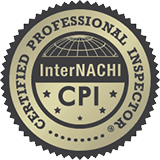Buying a home is one of the most significant investments you'll make in your lifetime, and it's essential to ensure that the property you're purchasing is in good condition. That's where home inspections come in. A home inspection is a visual examination of a property's structure and systems conducted by a professional inspector. In Fuquay Varina, NC, home inspections are critical for buyers to make informed decisions about their potential home purchase.
When to Get a Home Inspection in Fuquay Varina, NC
Most homebuyers in Fuquay Varina, NC, order a home inspection after they've made an offer on a property. It's important to schedule a home inspection as early as possible in the home buying process to give yourself enough time to address any issues that the inspector may uncover. You should also consider getting a home inspection if you're planning to sell your home. A pre-listing home inspection can help identify any issues that could affect the sale of your property.
What Does a Home Inspection Cover?
A typical home inspection covers the following components of a property:
- Roofing system
- Exterior walls
- Interior walls and ceilings
- Foundation and basement/crawl space
- Electrical system
- Plumbing system
- Heating and cooling systems
- Attic, insulation, and ventilation
- Appliances
The inspector will examine each of these components to identify any issues or defects that could affect the property's safety or livability. The inspector will then provide a detailed report of their findings to the homebuyer.
How to Find a Home Inspector in Fuquay Varina, NC
When selecting a home inspector in Fuquay Varina, NC, consider the following factors:
- Experience: Look for a home inspector with years of experience in the industry.
- Licensing and certifications: Ensure the inspector is licensed and certified by a reputable organization, such as the International Association of Certified Home Inspectors (InterNACHI).
- Reputation: Read online reviews from previous customers to gauge the inspector's reputation and quality of work.
- Services offered: Ensure the inspector offers a comprehensive range of inspection services.
- Pricing: Compare pricing from multiple inspectors to ensure you're getting a fair price for their services.
Conclusion
In Fuquay Varina, NC, home inspections are essential for homebuyers to make informed decisions about their potential home purchase. A home inspector can help identify any issues or defects in a property, providing buyers with peace of mind and the information they need to negotiate repairs or reconsider their purchase. If you're planning to buy or sell a home in Fuquay Varina, NC, consider scheduling a home inspection with a reputable inspector.
When to Walk Away after a Home Inspection
Greetings, dear reader!
Buying a new home in North Carolina is a significant milestone in anyone's life. It can be a very exciting and emotional experience, but it can also be stressful and overwhelming. This is especially true when it comes to the home inspection process.
A home inspection is a crucial step in the home buying process. It can help you identify any potential problems with the property before you make the purchase. However, even if you get a clean bill of health, sometimes, it may still be necessary to walk away from the deal.
So, when is it appropriate to walk away after a home inspection? Here are a few scenarios where you may want to consider walking away from the deal:
1. Major structural issues: If the home inspector discovers significant structural problems, such as a cracked foundation or severe water damage, it may be best to walk away. These issues can be very expensive to fix and may make the property unsafe to live in.
2. Mold and mildew: Mold and mildew can be a sign of water damage or poor ventilation. If left untreated, mold and mildew can cause health problems. If the home inspector discovers substantial mold or mildew, it may be best to walk away.
3. Electrical issues: Electrical problems can be very dangerous and expensive to fix. If the home inspector discovers significant electrical issues, such as outdated wiring or aluminum branch wiring, it may be best to walk away.
4. Pest infestations: If the home inspector discovers a significant pest infestation, such as termites, it may be best to walk away. These infestations can cause significant damage to the property and can be difficult and expensive to eradicate.
5. Costly repairs: If the home inspection reveals significant repairs that need to be made, you may want to consider walking away from the deal. Depending on the cost of the repairs, it may be more cost-effective to find a different property rather than investing in significant repairs.
A few things to remember. North Carolina is an as-is state, meaning the seller’s aren’t obligated to make any repairs. If the house is towards the top of your budget, or cash on hand for repairs are limited, these issues could be deal breakers. Make sure you exhaust all possibilities before walking away from a home that you love: Ask for repairs, negotiate a new purchase price based on the work that needs to be done. If an agreement can be made that’s within your means, great. If not, walking away, although difficult, may be the best decision you can make for your family.
In conclusion, a home inspection is a critical step in the home buying process. It can help you identify any potential problems with the property before you make the purchase. However, sometimes it may be necessary to walk away from the deal, especially if the home inspection reveals significant structural, electrical, or pest problems or if the cost of repairs is too high. Remember, it's better to walk away from a deal than to regret it later.
Asbestos Removal & Home Safety
Many homes built before 1980 contain asbestos in old floor tiles, ceiling tiles, roof shingles and flashing, siding, insulation (around boilers, ducts, pipes, sheeting, fireplaces), pipe cement, and joint compound used on seams between pieces of sheetrock. Some newer houses may also contain asbestos. Asbestos is a process of lung tissue scarring caused by asbestos fibers. Asbestos is the only known risk factor for malignant mesothelioma, a cancer that affects the tissue lining the lung (pleura) or abdomen (peritoneum). If you live in, or you're purchasing a home built prior to the 1980's and are thinking about remodeling, take a look at this article recently posted by The Mesothelioma Center - a comprehensive guide about asbestos removal and home safety. Follow the link below to get all the information you need on Asbestos and the dieseases it causes and how you can help prevent serious risk to you and your families health. https://www.asbestos.com/abatement-guide/
Roof Inspection Certification
We are Roof Inspection Certified! This certification goes well beyond the state's required home inspection requirements and we are now further qualified for inspecting roofs during the building process! If you need a thorough roof inspection, call us - we're certified!
Do I need a Home Inspection for a brand new home?
Do I really need a Home Inspection for a brand new home? This is one of the most frequently asked questions I receive. Before I went into the home inspection business, I never thought a new construction home would need to be inspected, after all, it’s BRAND NEW. On top of that, the builder couldn’t possibly miss anything, especially with all the permits needed and the building inspector giving the final ok. After I inspected my first new construction home, I was amazed at how many defects existed in the home. Till this day, I have yet to inspect a new home without finding some serious defects/mistakes. So to answer the question, Do I really need a Home Inspection on a brand new home? Absolutely! To help you understand why I believe a Home Inspection is needed on a new construction home, I’ve written five reasons, all based on true, personal experiences. My hope is that this will give you a better understanding of the intended purpose and value of a Home Inspection, and that is to protect your investment and to protect your family.
1. New construction homes have all sorts of problems. Building a home is very complex. It involves many different subcontractors and their employees each working on a different system of the house, usually without regard to the other house systems. With all of the construction going on simultaneously, it is nearly impossible for the builder to carefully check all phases of construction. Even the best builders will likely miss something. Here are some examples of some defects I have found in new construction homes:
Missing siding/Shingles
Broken roof trusses
Ducts completely unattached to the heating and air conditioning unit
Missing insulation in homes being sold as Energy Star energy-efficient homes
Organic growth on crawl space wood framing and insulation
Raised roof shingles allowing water to penetrate underneath the shingles
Plumbing leaks
Floor girders and joists not being supported properly
and one of the most dangerous defects I have found in a new construction home is a gas furnace with the exhaust gases terminating inside of the home. If this wasn’t caught, it could have potentially killed whomever was living in the home. This is not an act of negligence on the builder's behalf, It’s just difficult for the builder to check every system and every item installed by every contractor in a home, especially when multiple homes are being built simultaneously.
2. A municipal building inspection and a home inspection is not the same thing. The purpose of a municipal building inspection is to check for compliance with applicable building codes; however, building codes are minimum standards and factors beyond their control prevent these inspections from being enough.
3. Repairs aren’t negotiable. The Builder is obligated to fix everything wrong with the home. When buying an older home, the Home Inspection report is often used as a negotiation tool for the buyer’s agent, or buyer his/her-self. However, the seller is not required to fix everything, or anything for that matter. It is all negotiable. With a new home, however, if the builder wants to sell the home, he/she is inclined to fix everything wrong with the home prior to the sale.
4. Defects can be repaired before serious damage is done. Many defects in older homes, such as floor movement, wall cracks, etc… are direct results of defects that could have been prevented had they been fixed during initial construction. Having these defects repaired before costly damage can occur later on can save you thousands of dollars.
5. It matters when you sell your home. When you decide to sell your formerly new home, the buyer will likely get a home inspection. Deficiencies that date back to the original construction will be discovered even if you never knew they existed. At this point, it’s too late to get the builder involved. You now own these problems.
The Good News is, hiring a licensed professional Home Inspector at AG Home Inspections to inspect your new home can pay for itself many times over both monetarily and with peace of mind. You can feel confident that problems are identified and corrected early before you purchase your new home.
If you purchased a new home within the last 11 months and didn’t get a Home Inspection, there is still Good News for you. You can get a “1-Year Builder’s Warranty Inspection.” Don’t wait, schedule your inspection today before your warranty runs out and get the peace of mind you need and deserve.
For more information on Home Inspections, check us out at www.AGHomeInspectionsNC.com or email us directly at info@aghomeinspectionsnc.com.
3 Ways To Make Your Home More Efficient For The Winter.
1. KEEP THE INSIDE AIR IN AND THE OUTSIDE AIR OUT
It is very important for your energy savings to ensure there are no air leaks in your home. Warm air will escape out of any cracks and can make your heating system work harder and cost you more to heat your home. Use caulk or foam sealant to seal cracks and openings between stationary house components like a door frame and weatherstripping to seal components that move like an operable window or door.
2. SHOW SOME TLC TO YOUR HVAC SYSTEM
Your HVAC system may be a distant memory since you last powered it on, but before the cold weather descends, give it some TLC. Clean your system annually each autumn. Sediment build-up can cause your system to work less efficiently or potentially become a fire-hazard. Cleaning your system and getting it inspected will reduce the risks.
3. SEAL DUCT WORK AND REPLACE FILTERS
Your ducts are often times out of sight, out of mind, tucked away in the attic, basement or crawlspace, but a home with central heating can lose about 20% of the air that moves through the duct system. Make sure your ducts are properly sealed at the heating unit(s), air plenums and the supply register boots. Also inspect for any holes or rips. Tightly sealed and insulated ducts can potentially reduce your annual energy bills by $120 or more! During the winter, try to change your filter(s) regularly; a dirty filter will decrease air flow and energy-efficiency.
Colder weather is on its way, and using these tips will help you stay warm and cozy, while saving energy and money in your home!








